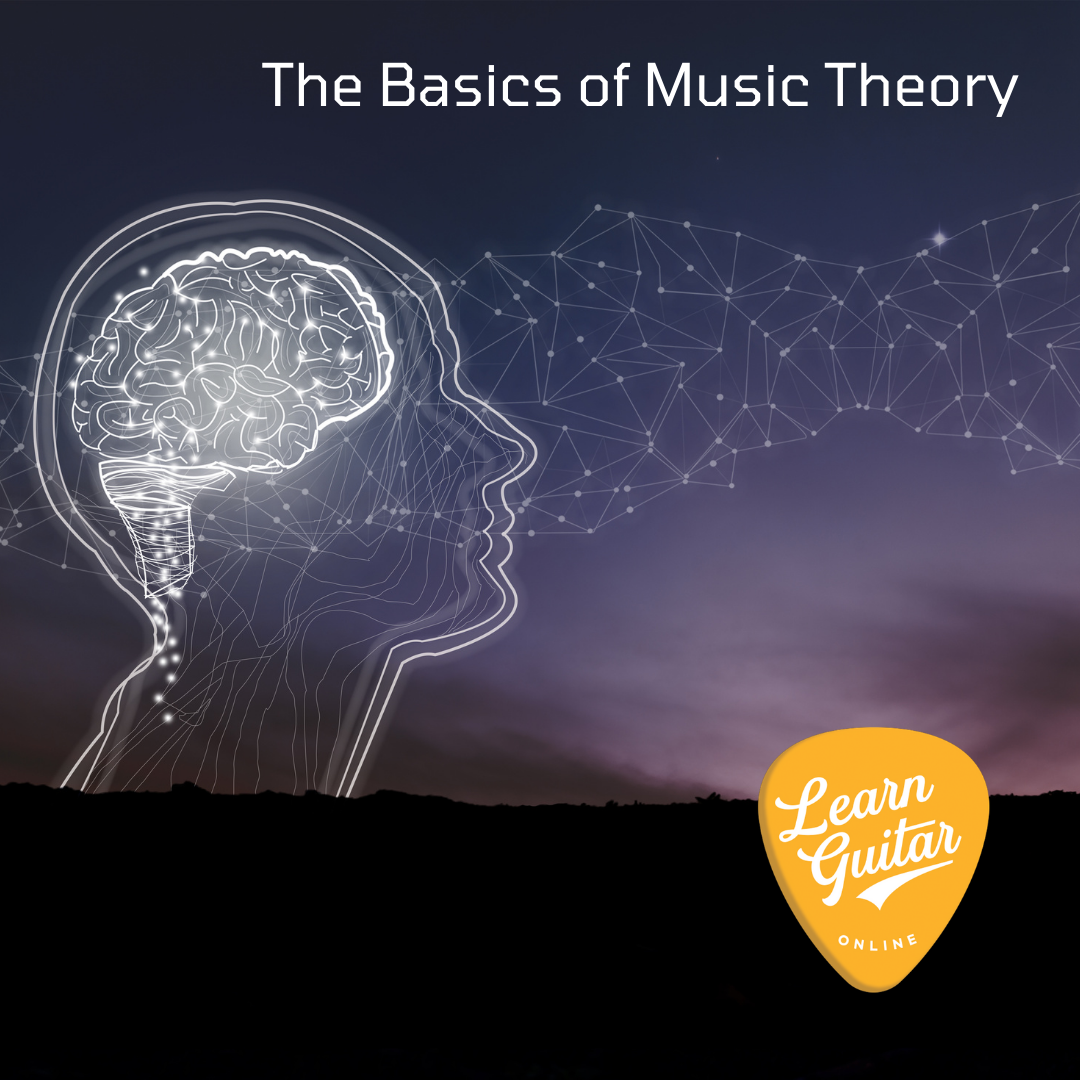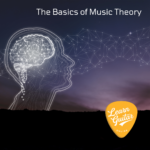Music theory is like physics, a vast subject that seems mundane and unnecessary for most of us. As you are becoming an intermediate to more advanced guitar player you will find that understanding music theory is very useful and critical. There are many different subjects under the umbrella of music theory but the study of harmony (chords) can dramatically improve your guitar playing and understanding of how music works.
Most songs are based around a series of chords that are in the same key. This is called a diatonic song. A song that is diatonic means that every chord and every note played or sung is in one key. A large amount of songs that you probably already know how to play on the guitar fall into this category. The term key refers to the first note of a major scale. For example the notes in the key of C and a C major scale are exactly the same notes.
There are seven notes in a major scale or key and seven different chords. When we refer to the notes in a key we use numbers and for the chords we use Roman numerals. In the link below we are using the key of C for an example but this can be applied to any key. The 1st, 4th and 5th note of every major scale represent the major chords in the key. The 2nd, 3rd and 6th are the minor chords and the 7th note is a diminished chord. Now you know every chord in the key of C. The numbers might seem a little bit confusing at first but the important thing to remember is that every key works in exactly the same way. The area in the shaded box is what you need to memorize and then you can apply this to all twelve keys. This is much easier than trying to memorize the seven different chords in all twelve keys!
Now that you know the chords in the key of C click on the link below for other common keys. Most songs written by guitarists and songs you will learn how to play on the guitar tend to be in one of these keys. Now you can see the chords for all of these keys by simply following the numbers. Example – the chords in the key C are, CMaj, FMaj, GMaj, Dmi, E mi, Ami and Bdim. Key of G – GMaj, CMaj, DMaj, Ami, Bmi, Emi and F#dim.
Relative Minor Key
Every major key has a relative minor key. Most of the songs you know how to play on the guitar that start with a minor chord are in a minor key.The relative minor key is the 6th note of a major scale. This means that the notes in the key of C are C D E F G A B and the notes in the key of A minor are A B C D E F G. They are exactly the same notes. The name of the scale or key is determined by which note you start on. If the main chord in a key is the 1 chord then you are in a major key. If the main chord in a song is the 6 chord then you are in a minor key.
Identifying a Key
Most of the time the first chord in a progression is the same as the key of the song and you can simply play in that key. There are also many songs where the first chord in the progression is not the main chord and you might struggle to find the right scales to play. Also songs could have multiple key changes. Let’s say you want to play a guitar solo over two simple chords – Dmi and Emi. What key would you play in? The problem is that if you start playing a Dmi scale it won’t sound right over the Emi chord. The reason for this is because these two chords only fit together in the key of C Maj/Ami. The Dmi is the 2 chord and the E mi is the 3 chord in the key of C. If you play C major or A minor scales they will fit perfectly!
Transposing
Transposing is a fancy word but now that you understand the chords and Roman numerals you can easily transpose any song to a different key. If you’re playing or writing a song in the key of C and the chord progression is C, Ami, F, G, (1625) you can easily transpose it to the key of G by following the numbers – G, Emi, C, D, (1625). It’s really that simple!
Do I Really Need to Learn Diatonic Chord Theory?
It’s easy to say that you want to just play your guitar by ear, write songs and feel the music. That’s great but I find that for most guitarists their ear only takes them so far. If you’re an aspiring composer, songwriter or lead guitarist then you will need to learn some basic music theory. If you’re composing your own songs you will want to know all the different options for the creation of your song. If you want to play a guitar solo it’s imperative that you know what key the song is in so you’ll know the correct scales to play. Many guitarists and songwriters who have been playing for awhile may know something about music theory but there’s still a lot of gray areas in their understanding of music. When you know the basics of diatonic chord theory you can learn in a few weeks what has taken some musicians a lifetime of trying to figure out!
I hope this inspires you in your quest to learn how to play the guitar!
Please feel free to email me any questions at howto@learnguitaronline.com.
Thanks for reading!
Andrew Morrison,
Learnguitaronline.com (co-founder)









